A Month in Vietnam
Written on December 24th, 2014 by David Valdman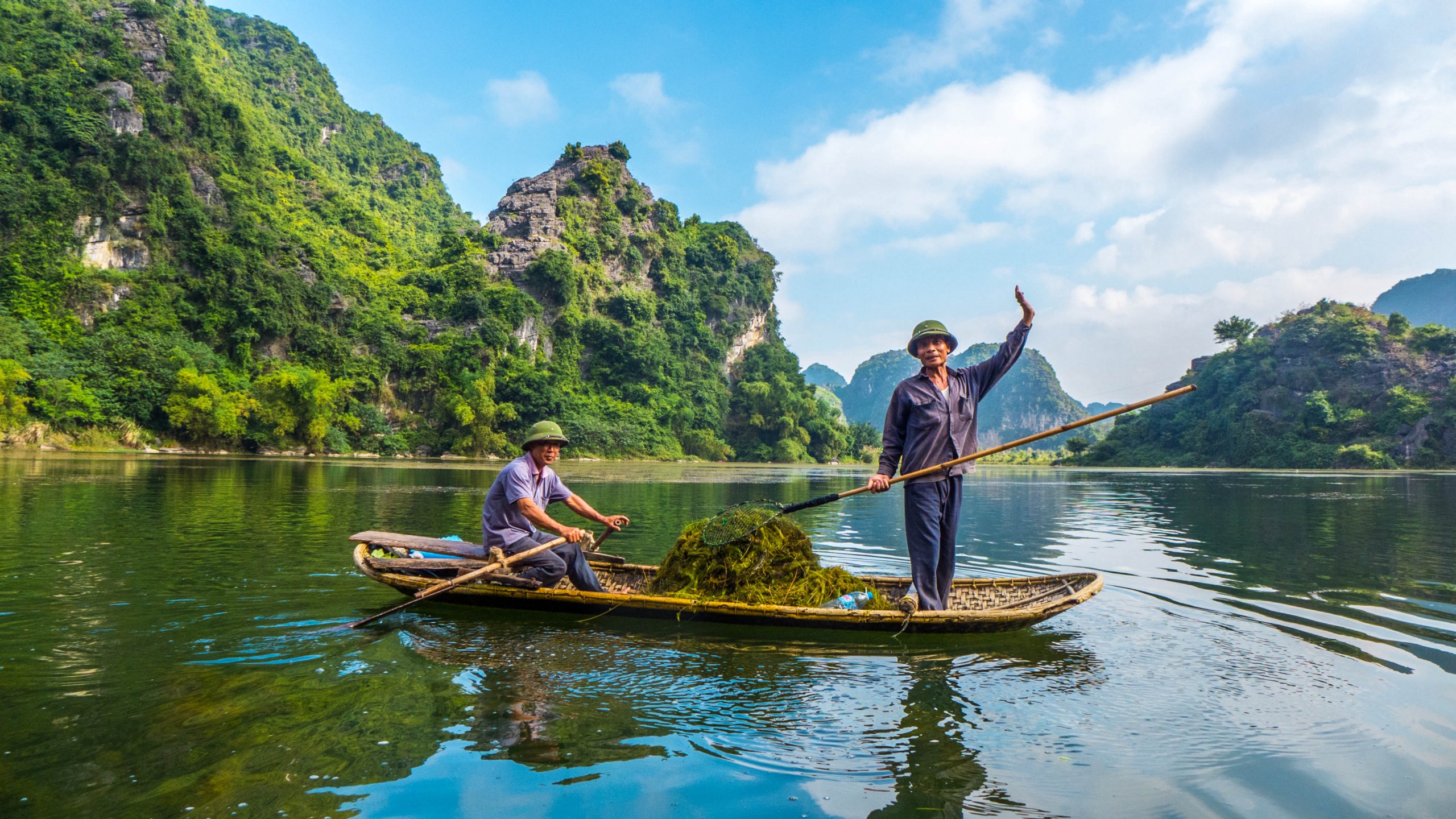
I’m writing from Chau Doc, a small town in the Mekong Delta on the border with Cambodia. Tomorrow I leave Vietnam and cross the border on a five hour boat ride to Phnom Penh. It sounded like a cool way to make an entrance into a new country.
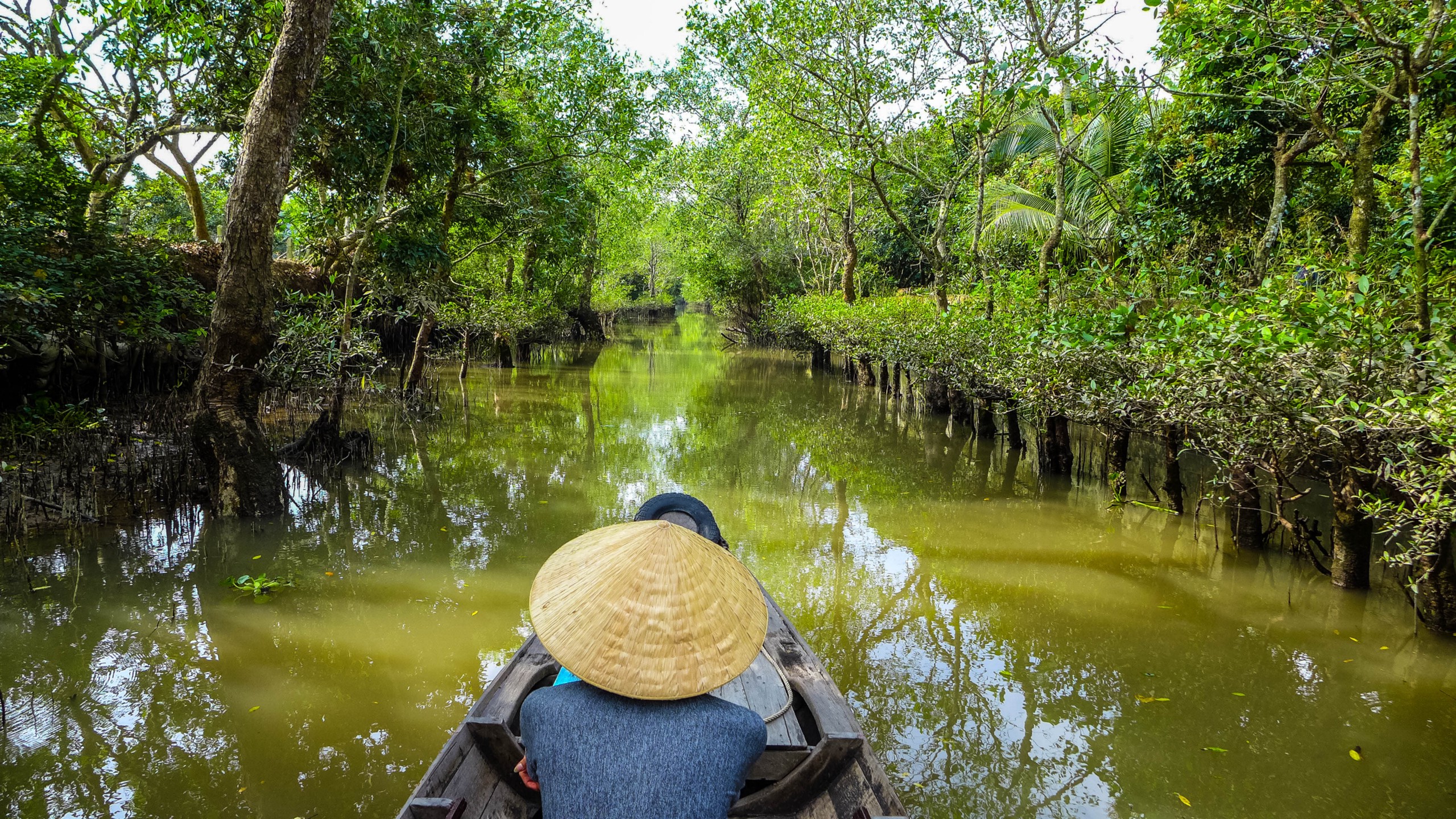 Life on the Mekong Delta
Life on the Mekong Delta
I’ve spent exactly one month in Vietnam. My visa expires the day after I leave. Along the way I’ve stopped at Hanoi, Ha Long Bay, Cat Ba Island, Ninh Binh, Phong Nha, Hoi An, Saigon, Vinh Long, Can Tho and Chau Doc. I’ve taken motorbikes, boats, buses, trains and planes to get around. I’ve eaten squid, eel, mouse, goat, all sorts of local fruit (durian, rambutan, star apple, phi trac, custard apple, dragon fruit) and street food: banh mi, pho, cau lau, banh be hue, banh bap, mi quang, banh xeo, bun cha, che. I haven’t yet tried the fertilized duck eggs or live snakes where you take their still-beating heart in a shot of rice wine and chase it with their freshly extruded blood, but then there’s plenty of time to do that in Cambodia.
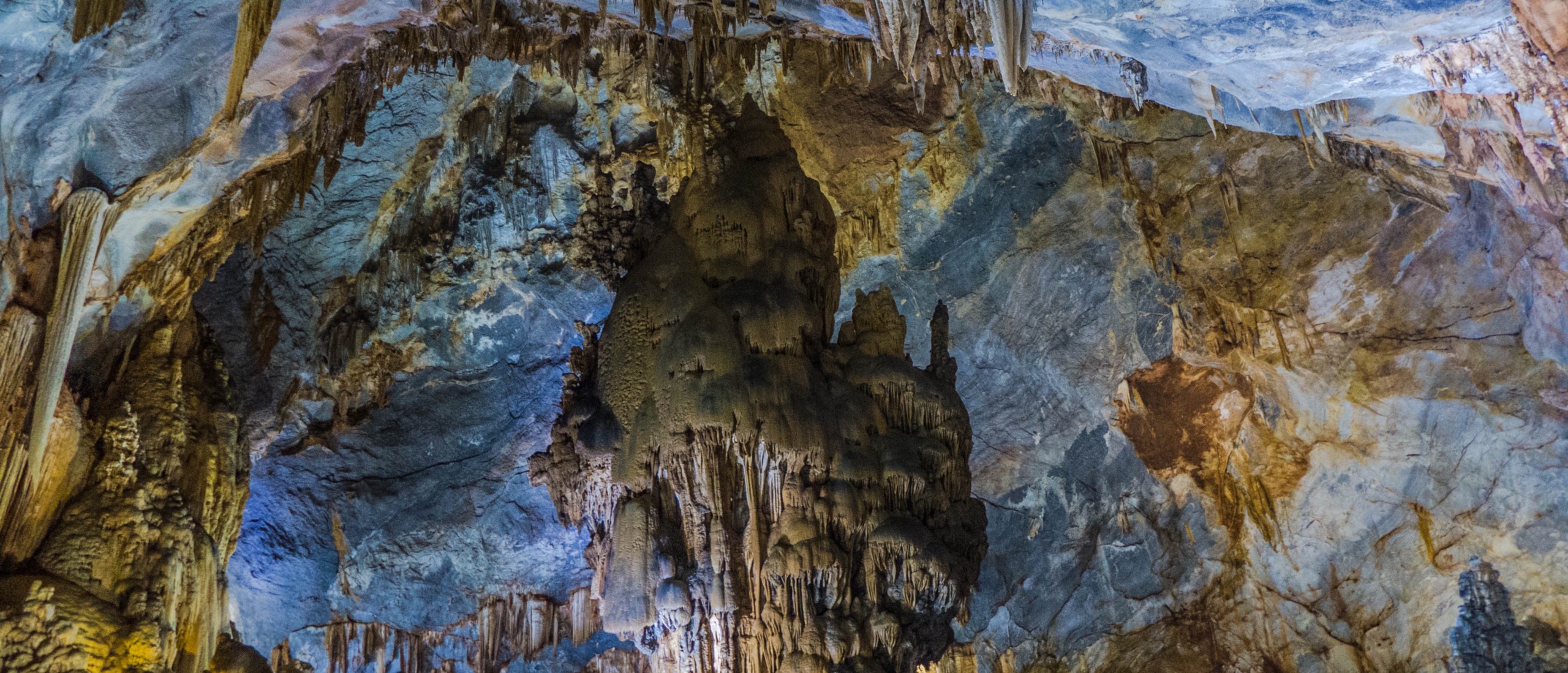 Paradise Cave, Phong Nha
Paradise Cave, Phong Nha
The first hour I set foot in Hanoi, I walked to the central lake, Hoan Kiem, where many people congregate to escape the frenetic noise and traffic of the city. Two girls approached me, Kim and Ngoc, asking to practice their English with a foreigner. As a traveller in a new land I had my guard up, but a sincerity came across in the way they approached. We spent the entire day and the next together as they wanted to share their city and traditions with me.
For a month I’ve been living in a country that felt this way to me at almost all times. I shared mussels and beer till 2am with my motorbike driver in Saigon who fought with the Americans against the Viet Cong in the American War (as it’s called here) and later against the Khmer Rouge. The night before I was drinking with a prostitute until 4:30am who was giving me a history lesson about the city. I was given a four hour food tour in Can Tho by a friend of the hotel owner, who kept offering to make me to other places. And that’s nothing to say of the other foreigners who would gather together planned or not and share their experiences.
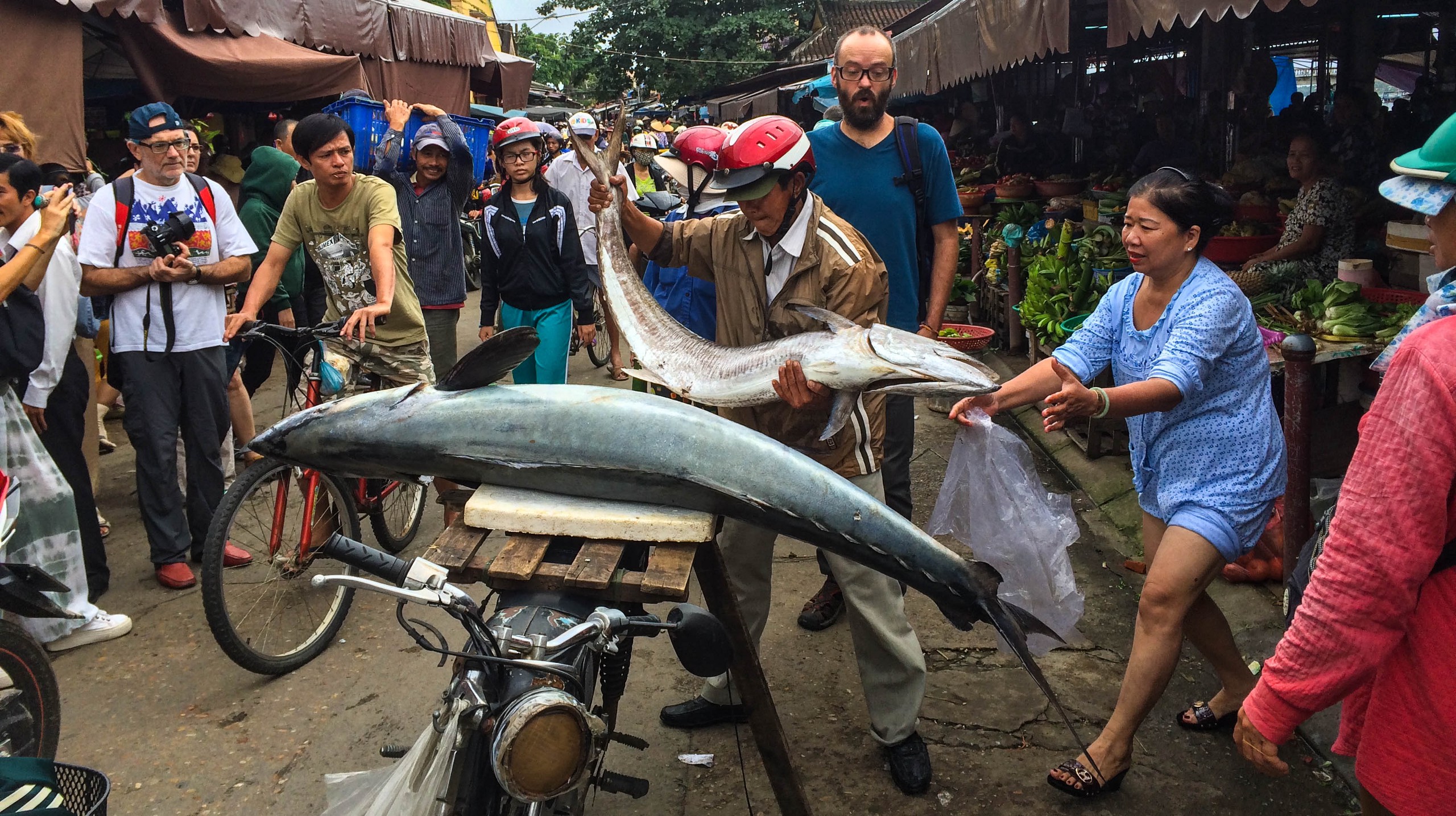 Market in Hoi An
Market in Hoi An
In the bigger cities and their touristy areas, it would sometimes feel there was a dollar sign on your forehead, and people were aggressively trying to sell you things. But at any time if you made a joke, or stroked their shoulder with a smile, their sell-face would disappear. It’s as if they were faking it the whole time. Outside of the big cities, I’d say about 80% of the children would wave or run into the street and say “Hello!” to you as you were passing by on bike. In the more remote places, the adults would too. Hardly any Vietnamese I met had the luxury of time or money to travel outside their country. It struck me what a privilege traveling is.
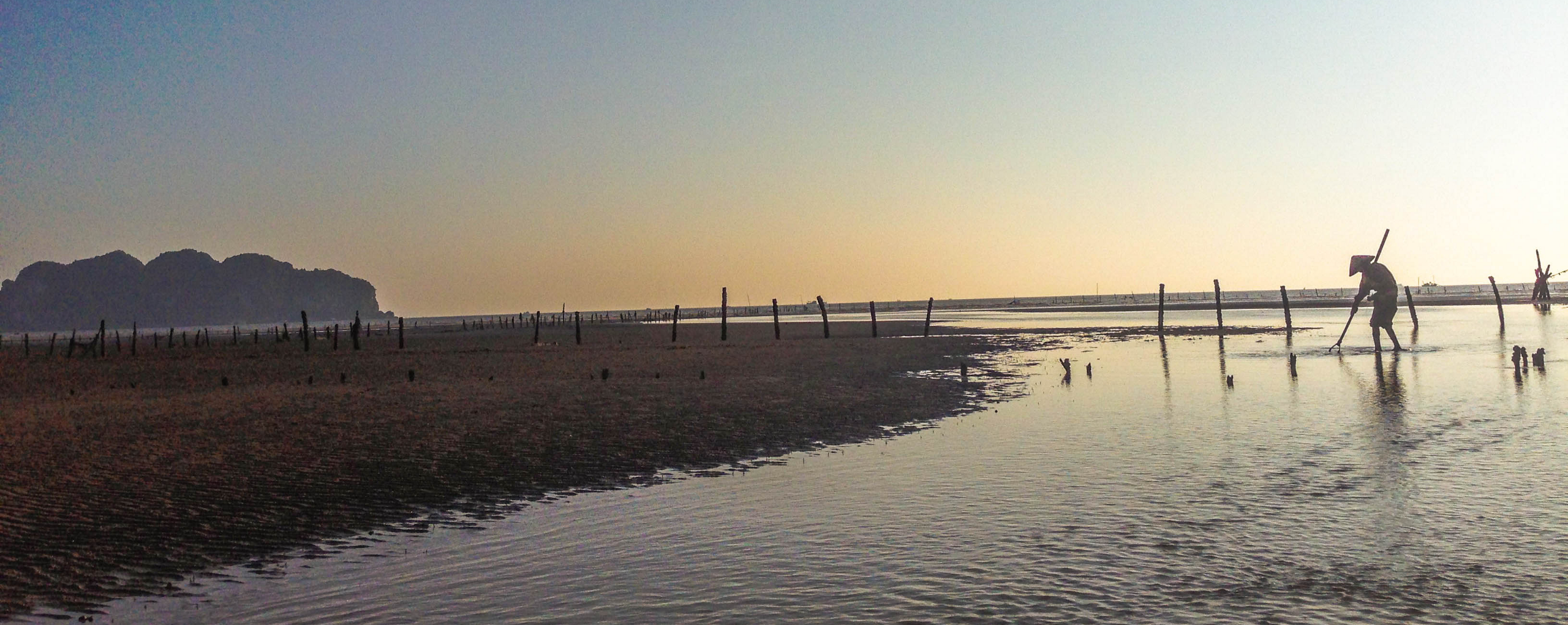 Crab farming on Cat Ba Island
Crab farming on Cat Ba Island
The traffic in the cities is an experience. There are rarely stop lights, and often people ride on whatever side of the road or sidewalk is most convenient. Gaps in traffic seldom come. You learn to just walk through it and watch as the wall of motorbikes parts around you like a school of fish. The trick is to keep a slow and constant pace, never stop or backtrack, and know the biggest player wins: bikes give way to cars which give way to buses. Crossing the street is thrilling, to say the least. They say the cars and motorbikes use their horn to break. Really, they use their horn for everything: to say “I’m here”, “I’m to the left”, “I’m to the right”, “Can you move to the side?” It’s like the Yo app: all communication in one sound, and all meaning derived from context. Somehow it works.
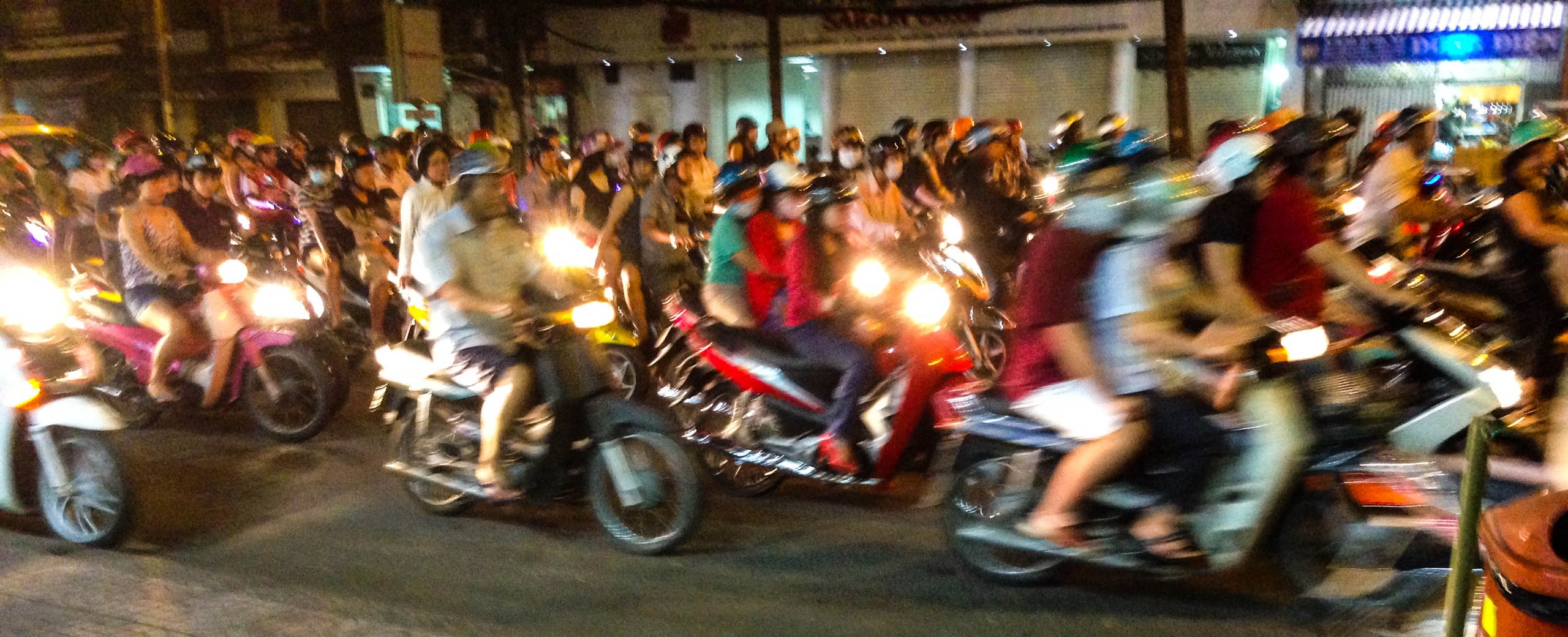 Saigon traffic
Saigon traffic
One thing a fellow traveller pointed out is that he’s never seen a driver get upset, and neither had I. Road rage is as foreign as McDonalds. You could say “they’re just used to it; it’s how things are”. But traffic is how things are in the states, and no one is used to it. It was explained to me that it’s more of a Buddhist thing; that to become frustrated is to lose face. It’s one of the many little observables that surfaces from a deeper cultural shift.
The Vietnamese are incredibly social. Everyone’s out at night, drinking and eating. Shops set up tiny stools smaller than kindergarten seats, and they flood the sidewalks. In the narrow streets of Hanoi, the overflow of chairs from one side of the street nearly kisses the other. It seemed to me that whether you were rich or poor, you ate at the same places, drank in the same company, and lived in the same neighborhoods. You’d often see a beautifully restored French Colonial house (that puts the Victorians in San Francisco to shame) next to a falling apart shack. Once I was in the market in Saigon eating my favorite morning food — banh be hue — with a woman that was clearly well off, and she told me she loves going here and having lunch for $1. A lack of envy is another cultural shift.
 Ninh Binh
Ninh Binh
Vietnam, you are a lovely place and people. You may try to get me to pay 2–4x more than the local price at times, and I did see one foreigner’s purse get snatched by a motorbike driver, but I can get past that. Your land is beautiful — between Ha Long Bay, the Mekong Delta, and all those crazy caves you have — and your people are kind. I hope to come back some time and do the Ho Chi Minh trail on motorbike.
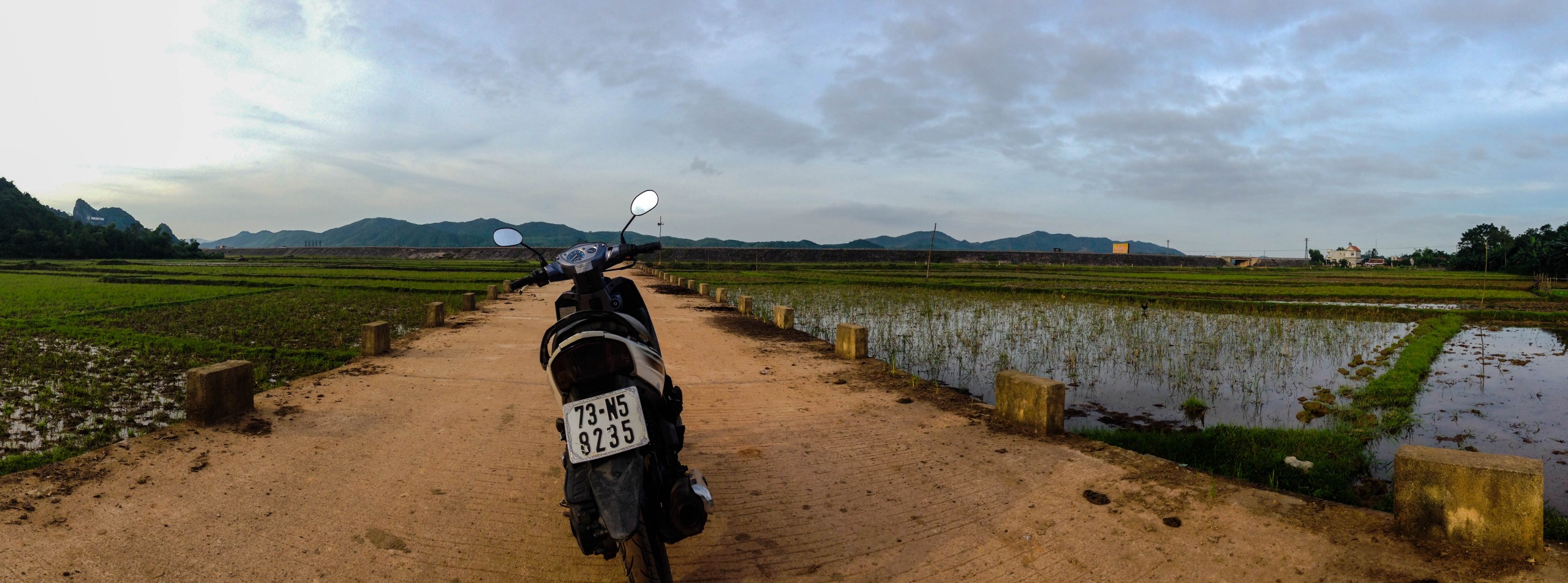 Ho Chi Minh Trail, Phong Nha
Ho Chi Minh Trail, Phong Nha
In this month I learned how to let go. How to not worry about taking the public bus you don’t know how to get to, to a city where you don’t know where you’ll sleep. I learned that for me to feel more alive, it helps to be out of my comfort zone. To see the future being created by following the present, rather than planning for it. To realize that there are many trajectories passing through each point in time, and you can jump from one to another on nothing more than a whim if it suits you better; there is an adventure and good times at the end of many of them.
